Remembering African sport's notable deaths in 2024
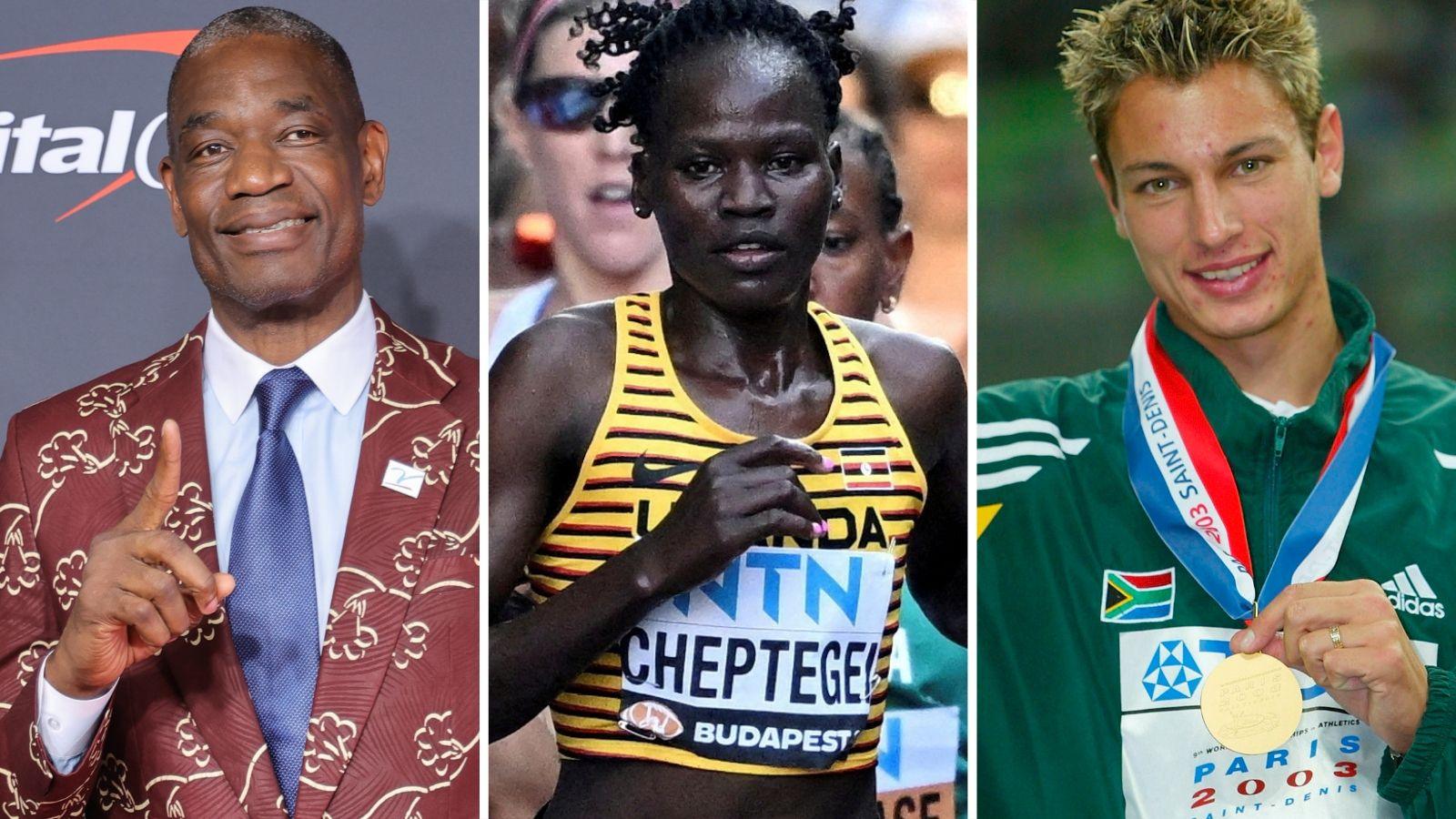
Former NBA All-Star Dikembe Mutombo, Ugandan runner Rebecca Cheptegei and 2003 world high jump champion Jacques Freitag all died in 2024
- Published
Africa bade farewell to several sporting greats over the course of 2024.
In a list that includes world champions and record holders along with stars of football and basketball, several of the deaths caused shock around the world.
BBC Sport Africa profiles a handful of the well-known faces that are no longer with us.
Dikembe Mutombo (DR Congo)
Former US Presidents Bill Clinton and Barack Obama were among those to pay tribute to Dikembe Mutombo in late September, hailing a man who left a legacy beyond the boundaries of a basketball court.
An eight-time NBA All-Star, his warm personality and trademark finger-wagging celebration made him a fan favourite over the course of his 18-year career in the USA.
Yet Mutombo will be remembered just as much for his humanitarian work in his native DR Congo and across Africa as his defensive skills as a centre following his death aged 58 from brain cancer.
Among the projects he funded were a hospital in Kinshasa and an educational institute in the city of Mbuji-May.
A 'heart of gold' - Mutombo's humanitarian legacy
- Published1 October 2024
Rebecca Cheptegei (Uganda)
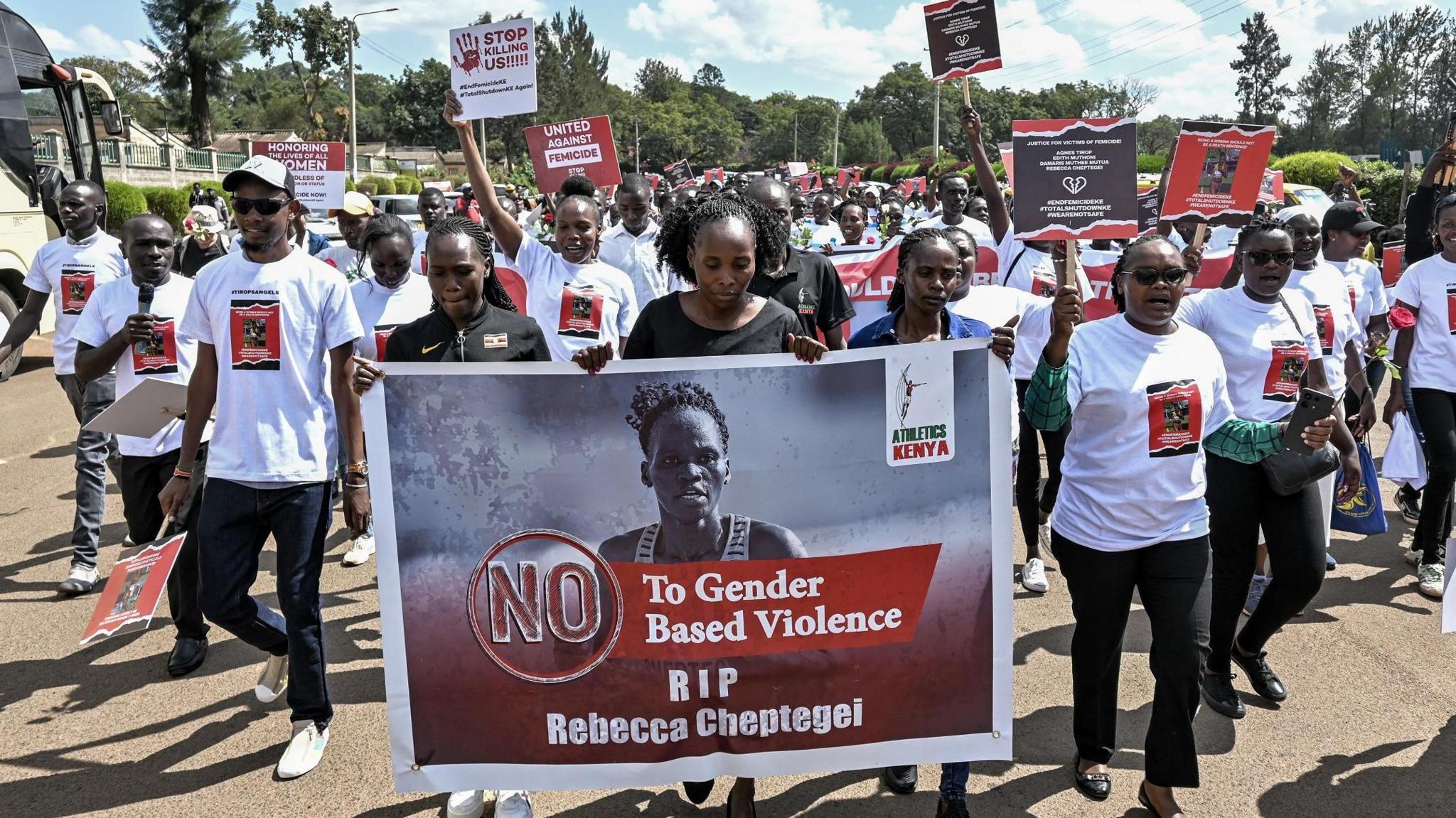
The murder of Rebecca Cheptegei led to protests in East Africa against gender-based violence
The 33-year-old runner became the victim of gender-based violence just weeks after competing at the Paris 2024 Olympics.
Cheptegei died days after being doused in petrol and set on fire by a former boyfriend.
A report filed by a local administrator alleged the Ugandan and her ex-partner had been wrangling over a piece of land in north-west Kenya, where she lived and trained.
Having become the third athlete to be killed in the East African country over the past four years, World Athletics has identified campaigning against gender-based violence as a priority.
The Olympic marathon - in which she came 44th - was Cheptegei's last race.
Thousands mourn Ugandan Olympian killed by ex-partner
- Attribution
- Published14 September 2024
'Running for her family' - Olympian mourned after vicious attack
- Attribution
- Published5 September 2024
Kelvin Kiptum (Kenya)
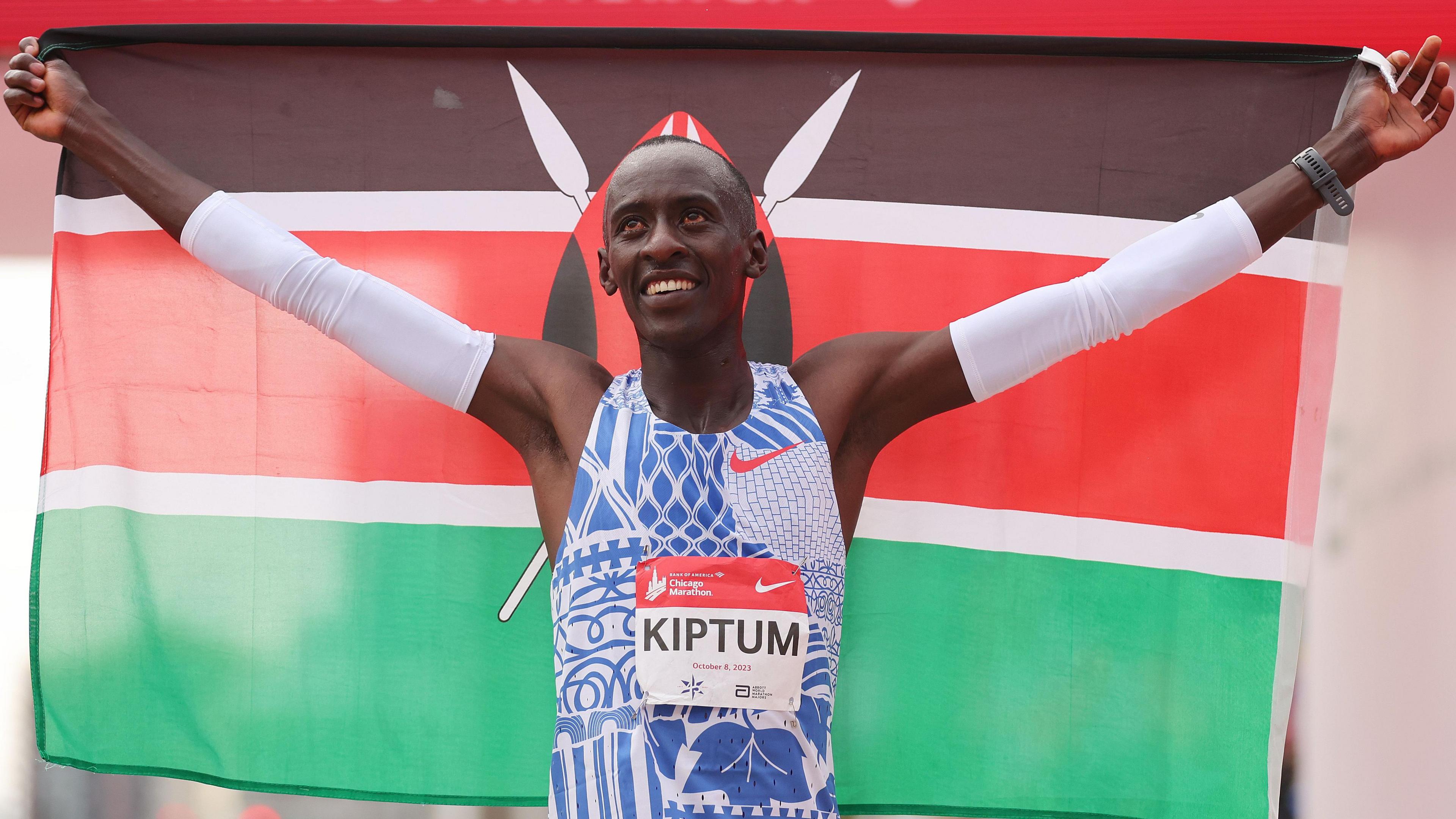
Kelvin Kiptum died just four months after breaking the men's marathon world record
Another distance runner who had their career cut short, Kiptum and his coach were killed in a road accident in Kenya in February.
The 24-year-old remains the marathon world record holder after setting a time of two hours and 35 seconds in Chicago in October 2023.
After that landmark, Kiptum – who had been unable to afford a pair of shoes to run in his first major competitive race in 2018 – said his career was just "getting started".
His sudden death left many in Kenya and the wider world in shock, with the overwhelming feeling one of potential lost.
The father of two appeared destined to become the first man to run a sub-two-hour marathon in open competition.
Kiptum 'would have broken' two-hour marathon mark
- Published23 February 2024
Kiptum - the marathon runner destined for greatness
- Attribution
- Published12 February 2024
Rachid Mekhloufi (Algeria)
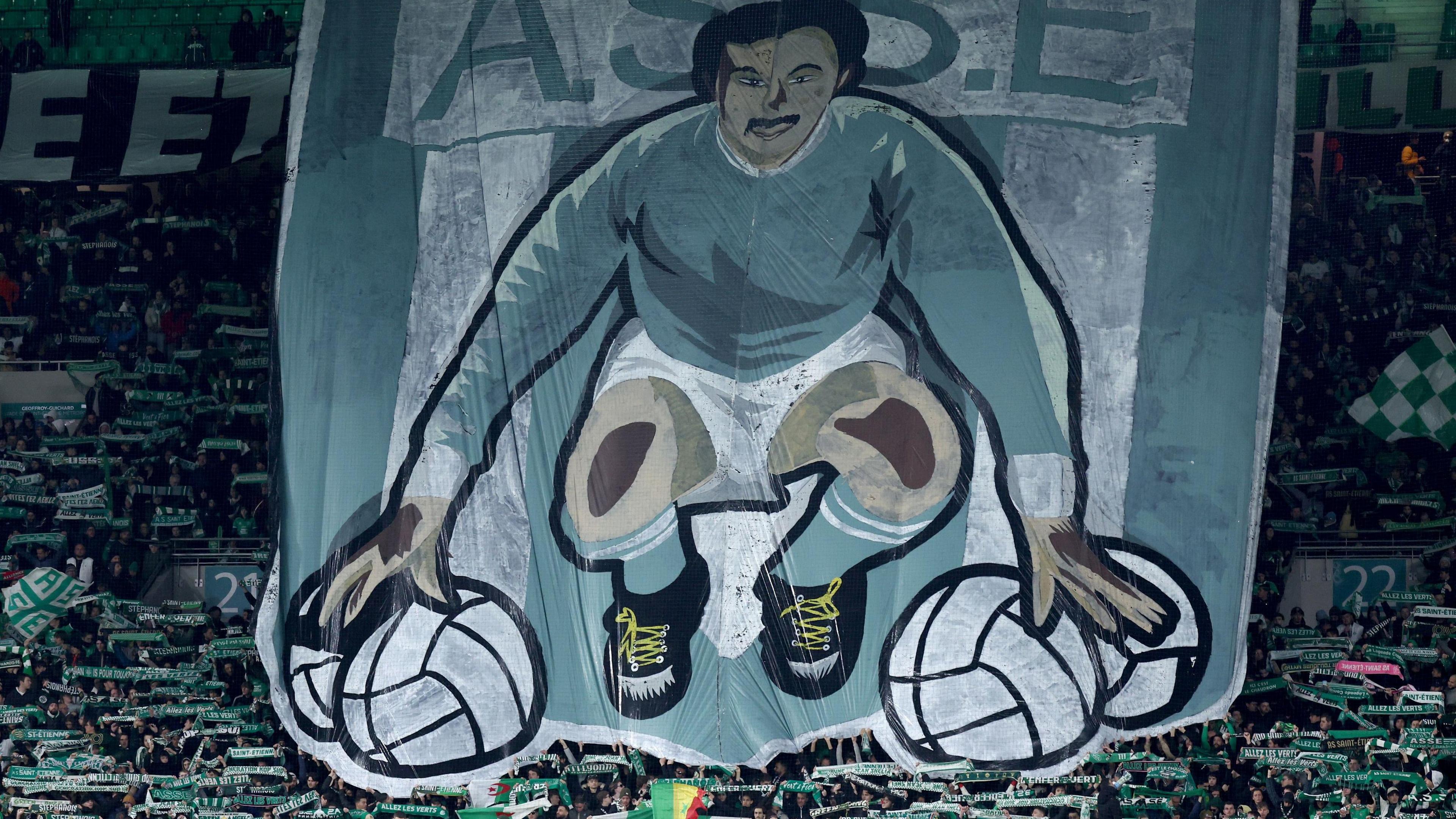
Fans of French club Saint-Etienne raised a banner in memory of Rachid Mekhloufi ahead of their game against Montpellier in November
The striker became a symbol of Algeria's fight for independence when he quit French club side Saint-Etienne in the first half of 1958.
Mekhloufi travelled to Tunis and helped found a National Liberation Front (FLN) team alongside like-minded players - many of whom had also been based in France.
Having won four caps for France, his actions meant he surrendered the chance to play for Les Bleus at the Fifa World Cup in Sweden that summer.
The FLN team played matches across the Middle East and North Africa, Eastern Europe and South East Asia to raise awareness of his homeland's bid for independence, which was eventually granted in 1962.
Mekhloufi later coached Algeria, including being in joint charge when Les Verts beat Germany at the 1982 World Cup, and served as president of the country's football federation. He died aged 88 in November.
Jacques Freitag (South Africa)
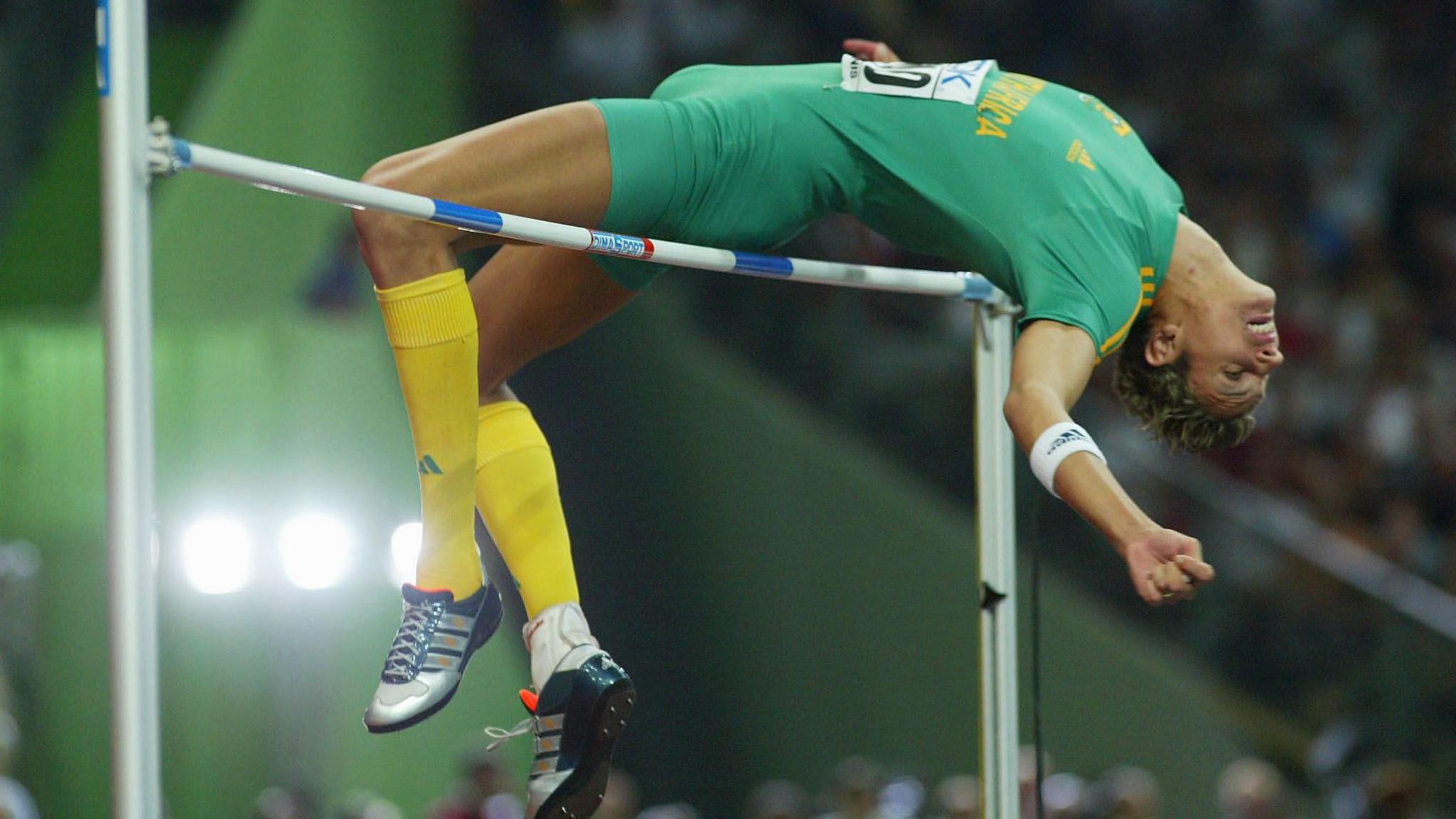
Jacques Freitag set what remains the African men's high jump record in 2005, two years after winning gold at the World Championships
The 2003 world high jump champion was found dead with multiple gunshot wounds in a cemetery in Pretoria in July, having gone missing two weeks beforehand.
The 42-year-old, whose mother was a national high jump champion, was one of a select group of athletes to have won individual world titles at Under-18, Under-20 and senior level.
He struck gold at the World Championships in Paris with a clearance of 2.35m, becoming the first African man to win a world title in a field event.
Freitag failed to reach the final at the 2004 Olympics in Athens but the following year he extended his African record to 2.38m - a mark that still stands to this day.
His was not the only violent death in South Africa this year, as Kaizer Chiefs defender Luke Fleurs was shot dead aged 24 in a carjacking in April.
Issa Hayatou (Cameroon)
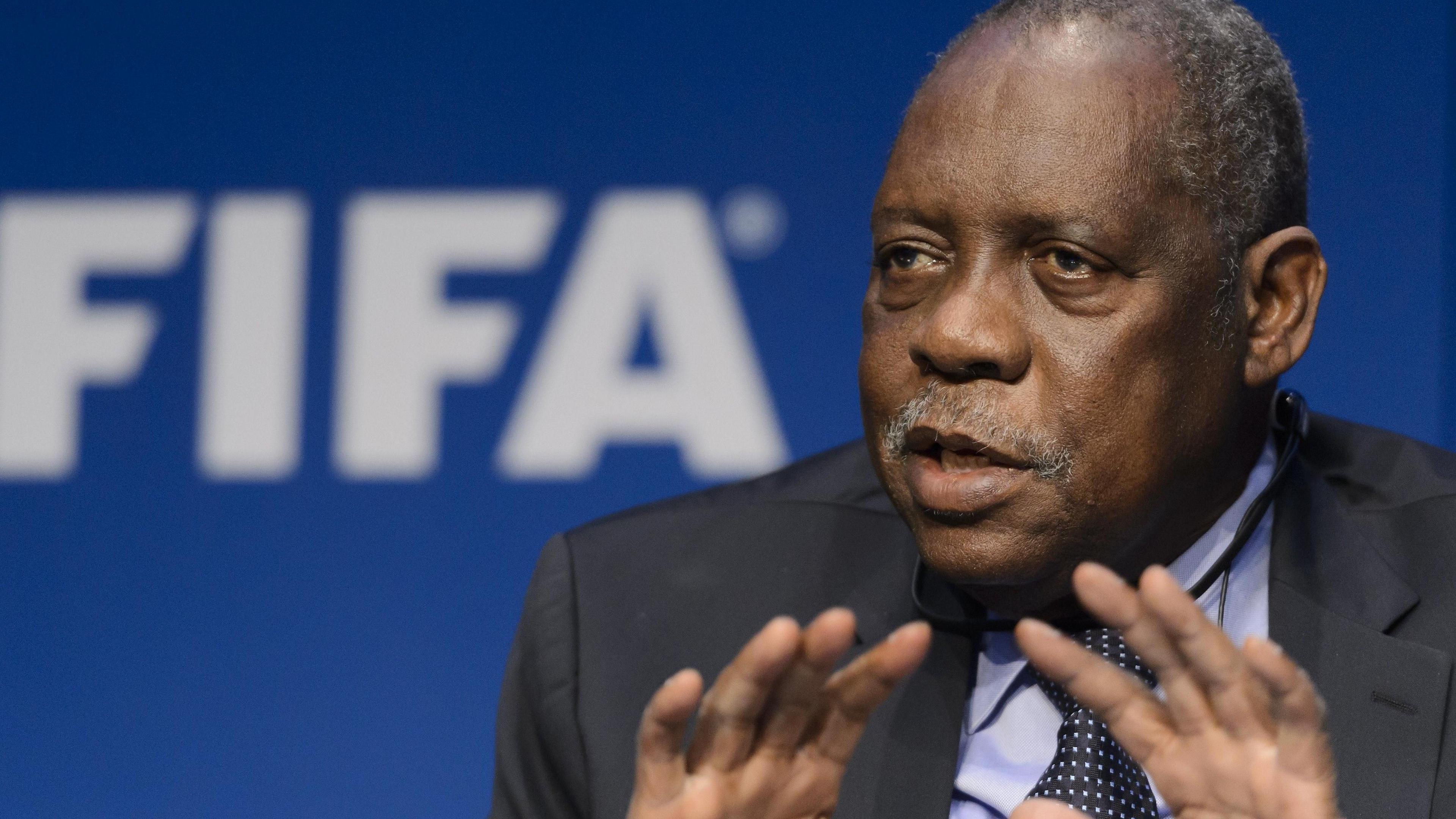
Issa Hayatou served as Fifa's acting president between October 2015 and February 2016
A national track champion who also represented his country in basketball, Hayatou dedicated most of his life to sports administration and helped to transform the Confederation of African Football over the course of his 29-year reign as president from 1988 to 2017.
He improved the organisation's balance sheet, provided more competitions to help develop players and infrastructure across the continent, and oversaw the expansion of the Africa Cup of Nations from eight to 16 teams.
The Cameroonian was a long-serving member on Fifa's executive committee – and briefly acted as president of football's world governing body.
Hayatou was implicated in scandals, including an allegation that he had taken a bribe during Qatar's bid for the 2022 World Cup, but denied any wrongdoing.
The son of a sultan, many believe Hayatou promoted the interests of African football better than most who went before or have followed since. He died aged 77 in August.